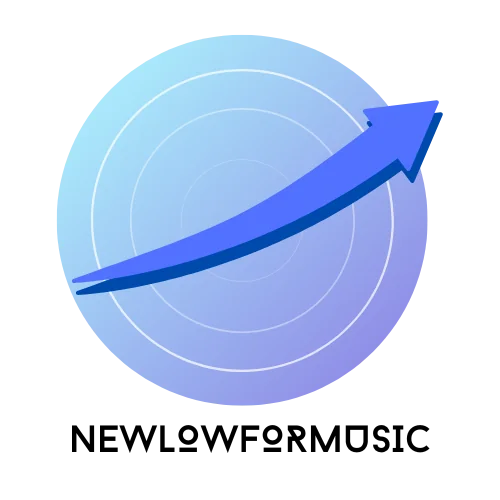Table of Contents
ToggleIn a world where change is the only constant, continuing education isn’t just a nice-to-have; it’s a must-have. Whether it’s learning the latest tech trends or mastering the art of coffee brewing, staying sharp keeps you ahead of the game. After all, who wouldn’t want to impress their friends with their newfound knowledge of blockchain or the perfect espresso shot?
Understanding Continuing Education
Continuing education plays a crucial role in both personal and professional growth. Embracing opportunities to learn ensures individuals stay relevant in their fields.
Definition and Purpose
Continuing education refers to any form of learning that occurs after formal schooling. This can include workshops, online courses, seminars, and certifications. Its primary purpose is to enhance knowledge and skills in a specific area. Professionals often seek these educational experiences to update outdated information and adapt to industry changes. Lifelong learning fosters a culture of curiosity and improvement, encouraging individuals to pursue new hobbies and interests outside their careers.
Importance in Professional Development
Continuing education significantly impacts career advancement. Employers frequently value candidates who demonstrate a commitment to ongoing learning. Moreover, this commitment can lead to promotions or salary increases. Professionals gain a competitive edge by acquiring new skills that align with the latest industry standards. Networking opportunities often arise through continuing education, helping individuals connect with peers and industry leaders. Therefore, pursuing ongoing education is essential for career growth and staying relevant in a fast-paced work environment.
Types of Continuing Education

Continuing education encompasses various learning avenues that enhance skills and knowledge. Understanding these options can guide personal and professional development.
Formal Education Programs
Formal education programs include degrees, diplomas, and certification courses. Universities and colleges offer structured programs that provide in-depth knowledge in specific fields. Programs often feature scheduled classes, experienced instructors, and assessments to measure understanding. Professionals pursuing advancement frequently consider enrolling in these programs to meet specific career standards. Online universities also provide the same structured approach, allowing flexible learning for busy schedules. Environments foster collaboration among peers, enhancing learning experiences.
Informal Learning Opportunities
Informal learning opportunities consist of workshops, webinars, and self-directed study. Individuals can engage in community classes that cover various topics, from art to technology. Industry conferences and meetups often provide insights into current trends and practices. Online forums and social media groups facilitate knowledge-sharing among professionals, creating a supportive community. Participating in hobbies or interest-based groups enhances personal growth, allowing learners to explore diverse skills. These opportunities are often less structured, promoting creativity and adaptability in learning new concepts.
Benefits of Continuing Education
Continuing education offers numerous advantages for individuals seeking to enhance their skills and knowledge. It plays a pivotal role in both career advancement and personal growth.
Career Advancement
Career advancement relies heavily on acquiring new skills and knowledge. Employers increasingly prioritize candidates who engage in ongoing learning, regarding them as proactive and dedicated. Engaging in continuing education can result in improved job performance, qualifications for promotions, and increased compensation. Professional certifications in specific fields provide evidence of expertise, often leading to a competitive edge in the job market. Networking opportunities arise from workshops and seminars. These interactions allow individuals to build relationships with industry leaders and peers, further enhancing career prospects.
Personal Growth and Development
Personal growth and development flourish through continued education. Pursuing new interests can stimulate creativity and expand one’s world view. Personal enrichment courses offer fresh perspectives on life and enhance critical thinking abilities. Skills acquired during these courses positively impact both professional and personal lives, contributing to overall well-being. Exploring diverse subjects encourages lifelong learning and adaptability. Engaging in these educational pursuits fosters self-confidence and fulfillment. These initiatives create a culture of curiosity that leads individuals to discover new passions outside their professional realms.
Challenges in Continuing Education
Continuing education presents various challenges that can hinder individuals from pursuing their learning goals. Two primary difficulties include time management and financial considerations.
Time Management Issues
Managing time poses a significant hurdle for many adults engaged in continuing education. Juggling work, family commitments, and personal interests often leaves little room for scheduled learning. Professionals may struggle to find consistent blocks of time for classes or study sessions. Additionally, unexpected obligations frequently disrupt planned learning schedules. Some individuals resort to online courses or flexible programs that allow for self-paced learning, helping them balance their responsibilities more effectively.
Financial Considerations
Cost remains a major obstacle in continuing education pursuits. Many professionals weigh their educational options against tuition expenses and other related costs. While some employers support their employees’ learning attempts through reimbursement programs, not all companies offer such initiatives. Financial aid and scholarships may alleviate some burden, but competition for these resources is often intense. Individuals must evaluate their financial situations carefully to determine feasible educational investments that align with their career advancement goals.
Continuing education stands as a vital component in today’s fast-paced world. It empowers individuals to stay competitive and relevant in their fields while fostering personal growth and creativity. By embracing various forms of learning—whether through formal programs or informal opportunities—individuals can not only enhance their skill sets but also expand their networks and career prospects.
Despite challenges like time constraints and financial considerations, the benefits of ongoing education far outweigh the obstacles. Committing to lifelong learning is an investment in oneself, paving the way for new opportunities and a fulfilling career. Engaging in this journey not only enriches professional lives but also ignites personal passions, contributing to a well-rounded and satisfying life.







